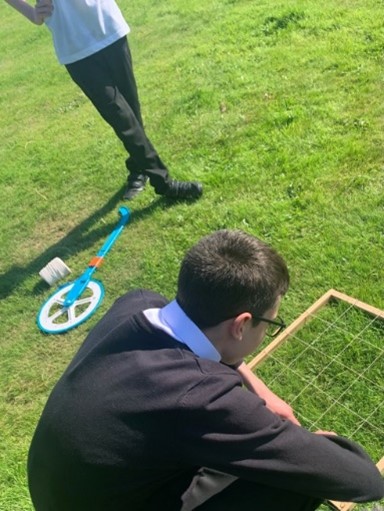Teachers in this Department
Miss Reid
Accommodation
This course is mostly taught in the science laboratory, but also offers opportunities to learn outdoors as well as visits to places of interest within the community.
Resources Young People will use
Young people will have access to lots of different types of scientific equipment to enhance learner experiences.
This includes equipment and chemicals for experiments (goggles, bunsen burners, thermometers, timers, metals, acids, alkalis, salts etc.) and also more visual equipment (human torso/organ models, solar system models etc.)
Young People will be expected to use a range of literacy, numeracy and ICT skills to help collect and analyse data; particularly using their Ipad.
Links with other partners/agencies
During this course young people will visit various places of interest depending on their learning pathway. These may include the Glasgow Science Centre, Amazonia, Kelvingrove Museum, Tollcross park, Summerlee Heritage Museum or the Greenoakhill landfill.
Visitors are often invited in, as well as visits to local schools, colleges and online events.
Course Outline
If you love investigating, being creative and are curious about the world then Science is for you!
- Learners will explore and participate in practical activities to allow further development of their skills and understanding of scientific concepts.
- Learners will learn how to follow methods, risk assesses and record results in an appropriate format to allow them to communicate their findings.
- Learners will use a variety of communication methods to analyse and interpret findings.
- Learners will research Science-based topics to better their understanding of how Science affects their life.
- Learners will have opportunities to use their scientific knowledge and skills in a context within their environment or community; for example, growing plants or identifying potential hazards.
There are a range of topics covered within the senior phase of the Science curriculum. In this subject, learners may achieve SQA National qualification full awards or units only, as appropriate.
If these courses/units are not suitable, then an alternative award would be available, for example, a Health and Safety or Environmental award.
Skills Developed through this Course
- Communication and presentation
- Questioning
- Inquiry and investigative skills
- Collecting and analysing data
- Interpretation of instructions
- Independent learning and group work
- Risk assessing and safety
- Creative thinking and reasoning
Progression Pathways
The Science Department offer a range of SQA courses, as appropriate to the learner.
There is a range of college opportunities to enhance Scientific experiences.
Career routes after school would be horticulture/environmental , health and beauty, fashion industry (materials), engineering (materials), painting and decorating (materials)